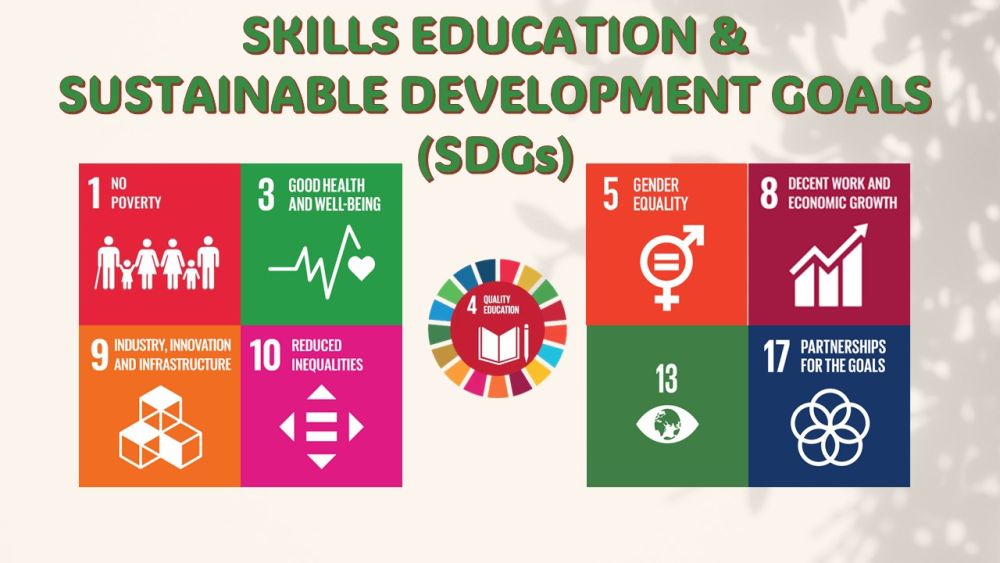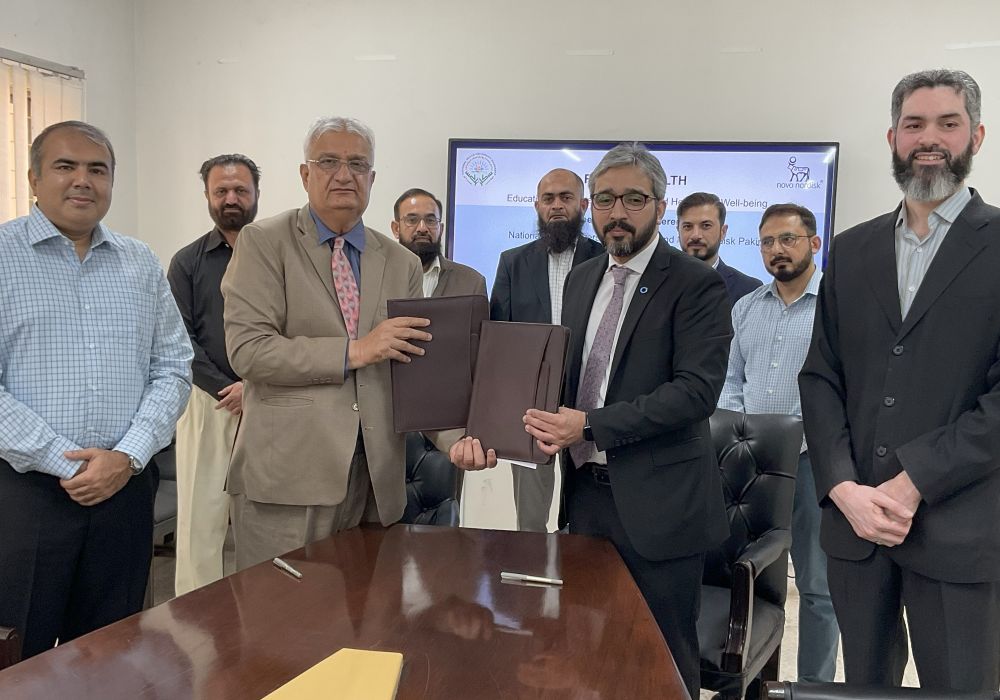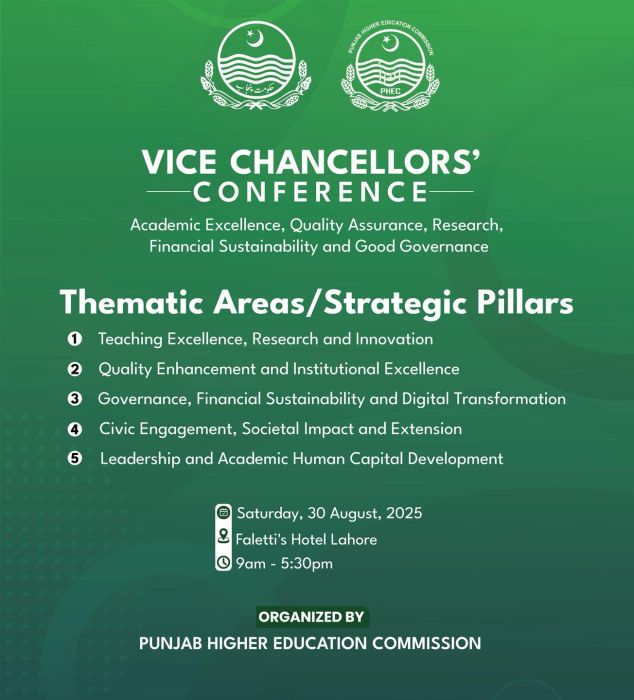Skills Education as the Key to SDGs Success
Posted 1 year ago
June 4, 2024
Editorial by: Prof. Dr. Muhammad Mukhtar, Vice Chancellor National Skills University Islamabad
In 2015, the United Nations (UN) adopted the 2030 Agenda for Sustainable Development, which includes 17 Sustainable Development Goals (SDGs) specifically designed to address global challenges and promote prosperity while protecting the planet. The pivot to achieving these goals is enhancing skills education that fosters innovation, ensures economic growth, and promotes social inclusion. This editorial explores the intrinsic connection between skills education and the SDGs, highlighting how education empowers individuals and communities to drive sustainable development.
According to Prof. Dr. Muhammad Mukhtar, Vice Chancellor of the National Skills University Islamabad, addressing SDGs through skills education, societies can foster an environment where individuals are equipped to contribute to sustainable development, thereby ensuring a more prosperous, equitable, and resilient future for all. He elaborates further on the role of skills education in achieving achievements in SDGs. He elaborates that skills education is linked to multiple Sustainable Development Goals (SDGs) set by the United Nations. These goals aim to address global challenges and ensure a better and more sustainable future. The primary SDGs related to skills education are:
SDG 1: No Poverty: Quality education and skills training are critical in breaking the cycle of poverty by providing people with the tools to secure better jobs and improve their well-being. SDG Target 1.4 "by 2030 ensure that all men and women, particularly the poor and the vulnerable, have equal rights to economic resources, as well as access to basic services, ownership, and control over land and other forms of property, inheritance, natural resources, appropriate new technology, and financial services including microfinance" is achievable through training workforce with skills and knowledge required for the passage to prosperity.
SDG 3: Good Health and Well-being: Skills education in health-related fields is vital for ensuring healthy lives and promoting well-being for all ages. SDG Target 3.c "Health workforce: Substantially increase health financing and the recruitment, development, training and retention of the health workforce in developing countries, especially in least developed countries and small island developing States" delineates the precise role of skills education in training a workforce that contributes to the health sector.
SDG 4: Quality Education – Setting the Scene for Skill Education
SDG 4 focuses on inclusive and equitable quality education and promotes lifelong learning opportunities for all. Quality education is the cornerstone of all other SDGs because it empowers individuals with the knowledge and skills necessary to improve their lives and contribute to their communities. Skills education, in particular, plays a pivotal role in this goal. Practical abilities and critical thinking skills equip people to face the challenges of the modern world, including those related to employment, health, and sustainability.
The following critical targets of SDG4 are linked with skills education
- By 2030, substantially increase the number of youth and adults who have relevant skills, including technical and vocational skills, for employment, decent jobs and entrepreneurship (SDG Target 4.4).
- SDG Target 4.7 mandates that by 2030 ensure all learners acquire knowledge and skills needed to promote sustainable development, including among others through education for sustainable development and sustainable lifestyles, human rights, gender equality, promotion of a culture of peace and non-violence, global citizenship, and appreciation of cultural diversity and of culture’s contribution to sustainable development
Investing in skills education also means addressing educational disparities. Marginalized groups, such as girls, rural populations, and people with disabilities, often have relatively lesser access to quality education. By prioritizing inclusive education policies, governments can ensure that all individuals, regardless of their background, have the opportunity to acquire essential skills.
SDG 5: Gender Equality – Bridging the Gap
Gender equality, outlined in SDG 5, is both a fundamental human right and a driver of sustainable development. Skills education is crucial in empowering women and girls, providing them the tools to participate fully in economic, social, and political life. Despite progress, significant gender disparities in education and employment persist globally. SDG Target 5.5 highlights the role of skills education in getting women ready for workforce in the following words:
Societies can bridge the gender gap by promoting gender-responsive education policies and ensuring girls have equal access to quality education and skills training. Educated women are more likely to contribute to the labor force, earn higher incomes, and contribute to economic growth. Moreover, women with skills and education are better equipped to innovate and lead in various fields, from technology to business, fostering a more inclusive and prosperous society.
SDG 8: Decent Work and Economic Growth – Empowering Economies
SDG 8 promotes sustained, inclusive, sustainable economic growth, full and productive employment, and decent work. Skills education directly contributes to this goal by preparing individuals for the labor market. In a rapidly changing world, where technology and globalization continuously reshape industries, the demand for skilled workers is higher than ever.
Vocational training and technical education focussing mainly on skills development are critical components of skills education that align with SDG 8. These programs provide individuals with the specific skills needed in various industries, from manufacturing to information technology. By aligning education with market needs, countries can reduce unemployment rates, increase productivity, and drive economic growth. Furthermore, fostering entrepreneurship through skills education can create new job opportunities and stimulate innovation.
The key targets of skills education supporting SDG8 are:
- SDG Target 8.2 states "achieve higher levels of productivity of economies through diversification, technological upgrading and innovation, including through a focus on high value added and labor-intensive sectors"
- SDG Target 8.3 is to "promote development-oriented policies that support productive activities, decent job creation, entrepreneurship, creativity and innovation, and encourage formalization and growth of micro-, small- and medium-sized enterprises including through access to financial services."
SDG 9: Industry, Innovation, and Infrastructure – Futuristic
SDG 9 stresses resilient infrastructure, promotes inclusive and sustainable industrialization, and fosters innovation. Skills education is essential for achieving this goal as it equips individuals with the knowledge and abilities to develop and maintain modern infrastructure and drive technological advancements.
SDG Target 9.5 is "Enhance scientific research, upgrade the technological capabilities of industrial sectors in all countries, in particular developing countries, including, by 2030, encouraging innovation and substantially increasing the number of research and development workers per 1 million people and public and private research and development spending" This requires extensive skills in educational programs.
Discussing Industry 4.0, which encompasses automation, data exchange, and manufacturing technologies, having a workforce proficient in STEM (Science, Technology, Engineering, and Mathematics) is vital. Moreover, promoting digital literacy and coding skills can lead to innovations that solve real-world problems, from renewable energy solutions to smart cities. By investing in skills education, countries can cultivate a generation of innovators who will lead the way in sustainable industrialization and infrastructure development.
SDG 10: Reduced Inequalities – Inclusive Growth
Skills education is a powerful tool for promoting social mobility and reducing disparities. By providing marginalized and disadvantaged groups access to quality education and vocational training, societies can create opportunities for all individuals to succeed.
Inclusive education policies focusing on reaching the most vulnerable populations can help bridge the skills gap and promote equitable economic growth. Additionally, skills education can address regional disparities by providing training programs tailored to the specific needs of local communities, thereby fostering inclusive development.
SDG 13: Climate Action – Skills for Sustainability and Saving Our Environments
Climate change, addressed in SDG 13, is one of the most pressing challenges of our time. Skills education is essential for equipping individuals with the knowledge and competencies to address climate-related issues and promote sustainability. Environmental education, which includes understanding climate science, renewable energy technologies, and sustainable practices, is crucial for fostering a culture of sustainability.
In particular, skilled individuals in renewable energy, sustainable agriculture, environmental science, and green technology can play a significant role in implementing climate mitigation and adaptation strategies.
There is an urgent need to integrate environmental education into curricula and promote green skills training. By doing so, countries can prepare their citizens to participate in the green economy, thus creating jobs in renewable energy, energy efficiency, and sustainable agriculture.
SDG 17: Partnerships for the Goals
- Equitable usage of technology and associated skills can only create globalization and mutual respect for nations. As outlined in SDG Target 17.6 "enhance North-South, South-South and triangular regional and international cooperation on and access to science, technology and innovation, and enhance knowledge sharing on mutually agreed terms, including through improved coordination among existing mechanisms, particularly at UN level, and through a global technology facilitation mechanism when agreed." Another interrelated Target 17.8 stresses to "fully operationalize the Technology Bank and STI (Science, Technology and Innovation) capacity building mechanism for LDCs by 2017, and enhance the use of enabling technologies in particular ICT."
Prof. Dr. Muhammad Mukhtar, Vice Chancellor of the National Skills University Islamabad, believes that skills education is the most powerful linchpin to achieving sustainable development goals. It empowers individuals with the knowledge and abilities to improve their lives, contribute to their communities, and drive sustainable development. The impact of skills education is far-reaching, from promoting economic growth and innovation to addressing climate change and reducing inequalities.
To realize the full potential of skills education, governments, academia, and the private sector must collaborate to create inclusive and equitable education systems. Investing in skills education today is an investment in a sustainable future for all. By prioritizing skills education, we can build a world where everyone has the opportunity to thrive and contribute to the achievement of the SDGs.





